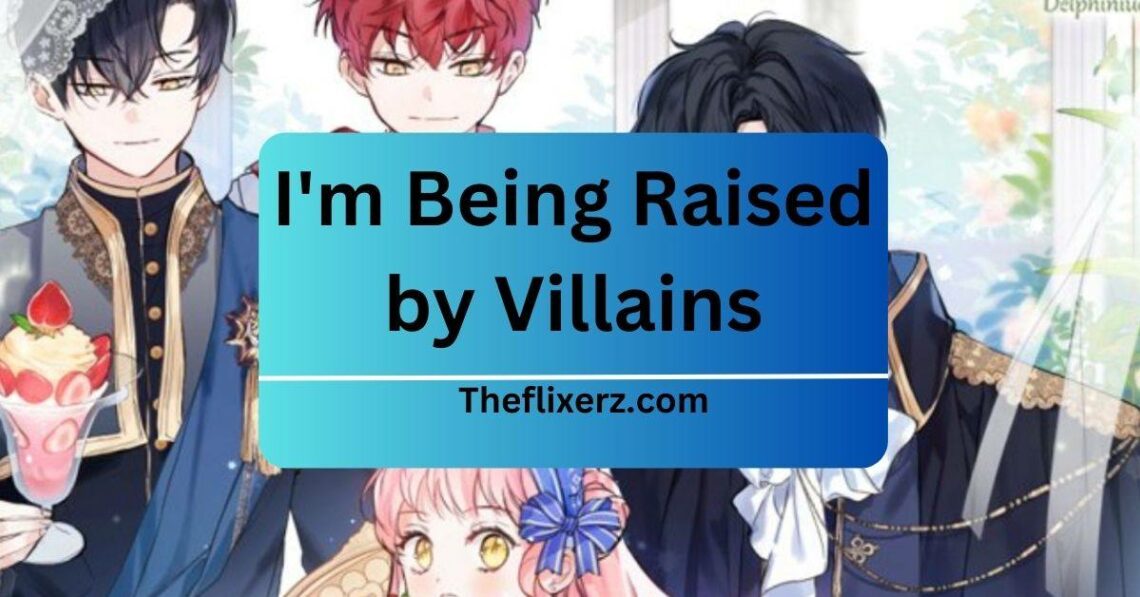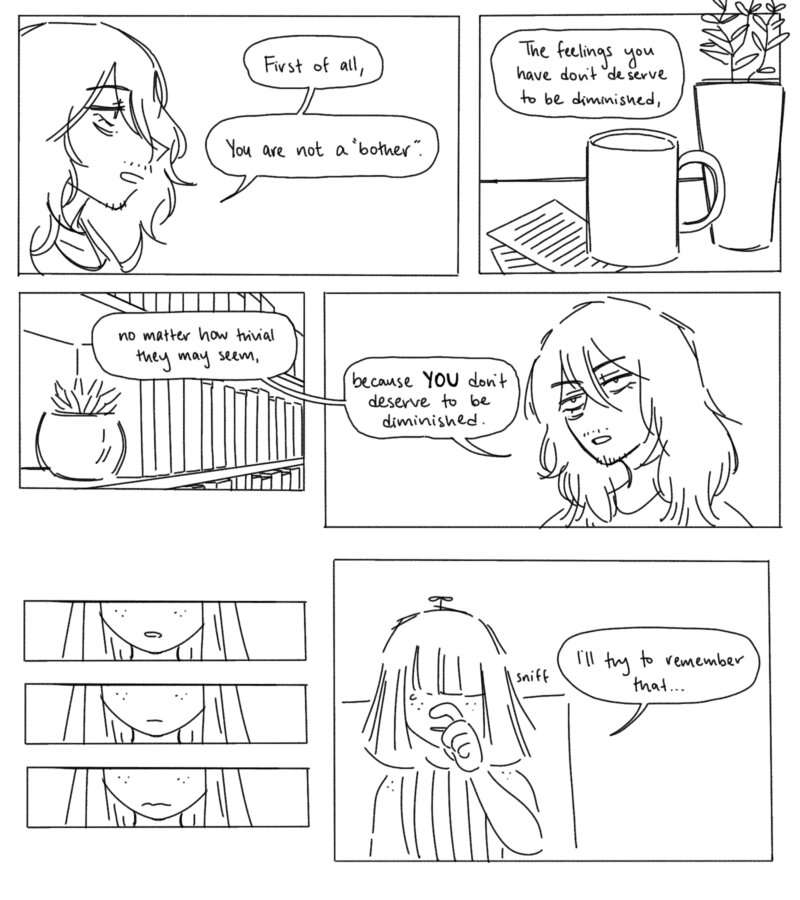
I’m Being Raised by Villains – Navigating Life’s Twists and Turns!
The expression “I’m being raised by villains” may seem like a twist in a comic book plot, but for some, it’s a harsh reality. Before exploring the intricacies, let’s clarify what this phrase truly signifies.
Growing up with not-so-good folks can be challenging, but with the strength to overcome it, you can become a better person. Firstly, surround yourself with positive influences; then, make good decisions and take small steps each day towards kindness and strength
I will explore further details about this .S0, Stay connected with us.
Table of Contents:
Effects of Growing Up Around Villains – Let’s Explore!
Growing up with negative influences can make it hard to trust people and deal with social situations. It might also lead to doing risky things or handling problems in not-so-healthy ways.

Real stories from people who’ve been through this show that it’s possible to overcome the challenges. Sharing these stories helps us understand how strong people can be in tough situations.
Sometimes, in movies and shows, they try to tell stories about tough upbringings, but they don’t always get it exactly right. However, here’s the thing: even if you grow up in a not-so-great way, you can still break free from it. It just takes a lot of strength and support, like talking to someone in therapy or counseling.
Looking at the bigger picture, we need to understand why these tough upbringings happen. It’s not just about one person; it’s also about solving bigger issues in our society.
By paying attention, being kind, and helping those who’ve had a hard time growing up, we can make the world a nicer and more supportive place. In essence, by working together, we can create positive change on a larger scale.
Read Also: JUSTIN BILLINGSLEY CONNECTICUT – THE ULTIMATE GUIDE!
How Growing Up Around Bad Influences Affects – Your Feelings and Thoughts!
Understanding why some people grow up in difficult situations is crucial. Firstly, we should assist those affected, and secondly, we need to tackle the bigger issues in our society that contribute to these circumstances. This way, we can create a kinder and more supportive community for everyone.
1. Societal Perceptions and Challenges:
Giving people who’ve faced tough times a chance to share their stories and successes can help change how others see them.
When we focus on the possibility of positive changes and understand the value of second chances, society plays a big role in helping these individuals overcome difficulties and make a positive impact in their communities.
2. Complex Moral Dilemmas:
Imagine a tough situation called the “trolley problem,” where you have to choose whether to steer a runaway trolley toward one person to save many or let it go, risking harm to a lot of people.
This makes us think about whether it’s okay to hurt one person on purpose to prevent more harm to others. It’s a tricky decision that makes us question the moral side of things.
Coping Mechanisms – Find Strength!
Some people use solving problems as a way to cope, breaking down challenges into small steps, and finding practical answers. This helps them take control of their situations and work towards fixing things.

1. Developing Resilience:
Developing resilience involves building the capacity to bounce back from adversity, cope with challenges, and adapt positively to stress or difficult situations. Resilience is not a fixed trait but a set of skills and attitudes that individuals can develop over time.
2. Forming a Sense of Self:
Healthy relationships and social interactions also contribute to forming a sense of self. Positive feedback, encouragement, and support from family, friends, and mentors play a crucial role in building self-esteem and confidence.
3. Seeking Positive Influences:
Building resilience means learning how to recover from tough times, handle challenges, and adapt positively to stress or difficult situations. Resilience isn’t something you’re born with; it’s a set of skills and attitudes that you can develop and strengthen as you go through life.
Read Also: REYNA LOVE – THE ULTIMATE GUIDE FOR YOU!
Media Representation – Diversify Media!
Media representation is how TV, movies, news, and social media show people, groups, events, and issues. It’s a big deal because it shapes what people think and feel about the world. When the media shows a mix of different perspectives, it helps challenge biases and create a fairer and more understanding society.
Good media representation is important because it reflects how diverse and complex society is. It helps include everyone, breaks stereotypes, and gives a more accurate view of different cultures and experiences.
But if the media shows negative or stereotypical stuff, it can make people believe wrong things and lead to unfair treatment.
Media representation isn’t just about culture and society; it also affects how people see themselves. Seeing positive and real portrayals in the media can really boost a person’s confidence and sense of belonging.
People who support positive media representation say it’s crucial to understand and question what we see in the media. This is called media literacy. It helps us be smart about what we watch and read, see through biases, and be part of a more informed and careful audience.
Life Stories of People Raised by Villains – Share Journeys!

Explore the resilience of individuals in “Life Narratives of Those Raised by Villains.” Furthermore, these accounts illustrate how they confronted challenges, rebounded, and discovered the strength to build a better life.
1. Overcoming Adversity:
Navigating tough times and growing stronger is, in essence, overcoming adversity. Everyone encounters challenges, yet staying positive and learning from setbacks is crucial for personal growth.
The ability to bounce back from tough situations, known as resilience, plays a pivotal role. Additionally, having the support of friends and family significantly eases the journey. Ultimately, overcoming adversity involves facing challenges, maintaining a positive outlook, and emerging even stronger.
2. Lessons Learned:
Sharing lessons learned with others can also contribute to collective wisdom and community growth. When individuals openly communicate their experiences and the insights gained, it creates a supportive environment where others can benefit from shared knowledge.
How People Affect Society – Impact Together!
Now let us talk about the individuals and groups that do have a big impact on how communities work and change. This influence reaches into different areas like culture, social connections, money, and politics.
In terms of culture, what people create and how they change traditions and values shape the identity of a group. This shows up in art, books, and the things people do together.
In social aspects, the things individuals do affect how communities stick together. Being kind, understanding, and joining in community activities helps everyone get along. On the flip side, when people act badly or treat others unfairly, it can divide communities and slow down progress.
Money-wise, the choices people make about jobs, spending, and new ideas affect economies. Starting businesses, coming up with new things, and being responsible with money help, while bad practices and big differences in wealth can cause problems.
In politics, how people get involved and speak up influences how a place is run. Voting, taking part in causes, and being active in the community help make sure everyone’s voice is heard.
With the internet, technology, and social media, what people say and share can quickly spread. This helps ideas move fast, brings people together for good causes, and creates online communities that connect people from different places.
All in all, how people impact society is a mix of what individuals do, how groups work together, and what happens on a global scale. Knowing that what we each do matters and working together for positive changes is important for making society better for everyone.
Read Also: HOMEWORKIFY – SIMPLIFY YOUR TASKS!
Frequently Asked Questions:
1. Are there real-life instances of individuals being raised by villains?
Yes, there are documented cases of individuals who have faced such challenges. Their stories shed light on the complexities of navigating a villainous upbringing.
2. How does the media contribute to societal perceptions of individuals raised by villains?
The media often shapes public opinion. We delve into how literature and movies influence societal attitudes toward those with villainous upbringings.
3. What are some coping mechanisms for individuals facing the psychological effects of a villainous upbringing?
The article discusses various coping mechanisms, including developing resilience, forming a sense of self, and seeking positive influences.
In the summing up:
In conclusion, what each person does affects how our community works in terms of culture, relationships, money, and politics. Recognizing the collective responsibility for positive change is crucial for fostering a harmonious and progressive society.
You May Also Like

How To Build A +Scalping Strategy Using Adaptrad? – Discover It!
March 18, 2024
How secure are blockchain transactions?
April 8, 2024

